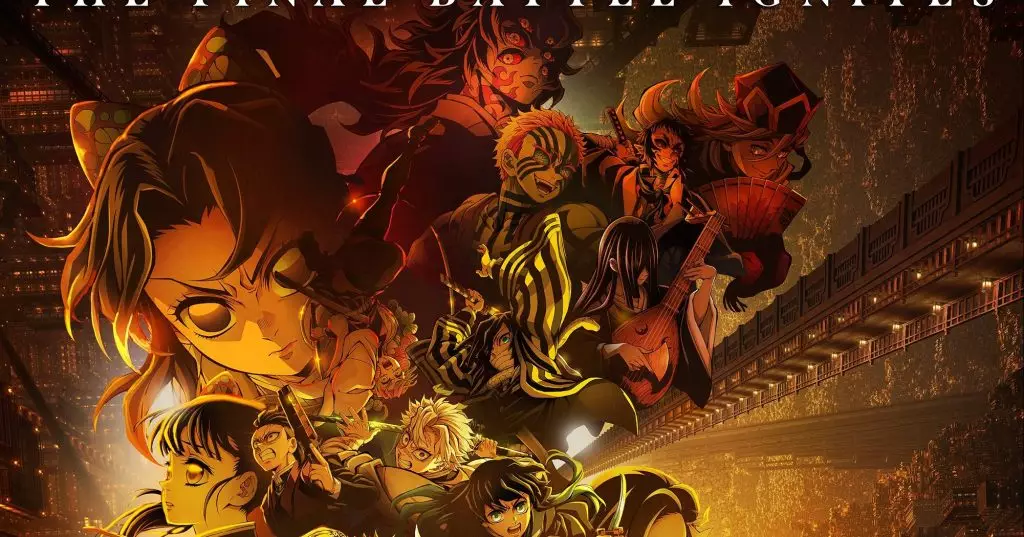Demon Slayer, specifically the recent “Infinity Castle” movie, has transcended traditional entertainment boundaries, becoming a cultural juggernaut in Japan—a testament to the industry’s ability to reinvent itself. The film’s explosive performance is not merely driven by anime fandom but reflects a broader societal appetite for stories rooted in resilience, morality, and mythic battles that resonate beyond niche audiences. Unlike many Hollywood blockbusters that rely heavily on spectacle and franchise fatigue, Demon Slayer taps into a distinct emotional core that appeals to a diverse demographic spectrum, drawing in viewers who seek more than just mindless entertainment.
The film’s record-breaking debut suggests a shift in consumer preferences toward high-quality, culturally rooted storytelling. Its success, already cemented as the second-biggest film of the year domestically, underscores the power of well-crafted anime narratives to compete and surpass global Hollywood productions. This is a wake-up call to the Western entertainment industry: audiences are increasingly hungry for content that combines compelling storytelling with artistic authenticity. Demon Slayer has filtered through a lens of traditional values, family bonds, and heroism, aligning more closely with cultural narratives that Western audiences may have neglected for too long.
Commercial Triumph Aligned with Cultural Resilience
Financially, the numbers are staggering: over 7 million admissions within four days and a box office revenue approaching $50 million in Japan alone. The film’s efficiency in monetization, especially via the Imax format, signifies more than just consumer enthusiasm; it indicates a willingness among Japanese viewers—and perhaps audiences worldwide—to invest heavily in immersive cinematic experiences that pay homage to beloved characters and stories.
However, beneath these impressive figures lies a deeper insight—Demon Slayer’s success is not accidental. It capitalizes on a growing desire for stories that emphasize resilience in the face of adversity. In a society still grappling with economic uncertainties and social fragmentation, narratives centered around perseverance and moral integrity serve both as escapism and as moral compass. This aligns with center-right liberal ideals that favor cultural preservation, societal cohesion, and the importance of shared values—principles that are richly embedded within Demon Slayer’s storytelling fabric.
Global Aspirations and Cultural Diplomacy
Another crucial aspect of the film’s triumph lies in its international potential. The global release, scheduled for later this year, marks an ambitious step by Sony and Crunchyroll to export this cultural phenomenon beyond Japan’s borders. This strategic move isn’t just about commercial expansion; it is an act of cultural diplomacy. By sharing these stories worldwide, Japan is asserting soft power—redefining the narrative of what Asian pop culture represents on the global stage, countering Hollywood’s erstwhile dominance.
Yet, this comes with a risk—a challenge to Western-centric dominances in media. Demon Slayer’s global appeal may shape perceptions of Japanese culture as sophisticated, moral, and artistically profound. It encourages a more balanced view, one where storytelling importance is recognized irrespective of origin. Such an evolution could be a guiding light for a center-right ideology that emphasizes cultural sovereignty and the importance of maintaining traditional values amid globalization’s swirling tides.
The Context of Consumer Choice and Cultural Identity
This cinematic record is also reflective of a broader societal identity struggle—balancing modernity with tradition. Demon Slayer channels a nostalgic yearning for simpler morals and classic heroism while innovating through high-quality animation and storytelling. Its commercial success signifies a collective affirmation of cultural individuality, which many Western nations often seem to undervalue in the face of homogenized global media.
From a liberal center-right stance, this highlights the importance of fostering cultural enterprises that reinforce national identity, promote economic growth through creative industries, and bolster societal cohesion. Demon Slayer embodies that balancing act—respect for tradition, innovation, and effective marketing—making it a model for cultural resilience and economic vitality simultaneously.
In considering this phenomenon, one must ask: in a world increasingly dominated by transient trends and digital distractions, how does a story like Demon Slayer manage to carve out such a lasting cultural niche? The answer lies in its authentic blend of morality, artistry, and emotional depth—elements that a centrist ideology should cherish as vital to societal health. As entertainment becomes more globalized, maintaining cultural roots through successful stories like Demon Slayer is not only smart business but a necessity for cultural sovereignty and societal resilience in an ever-changing world.

